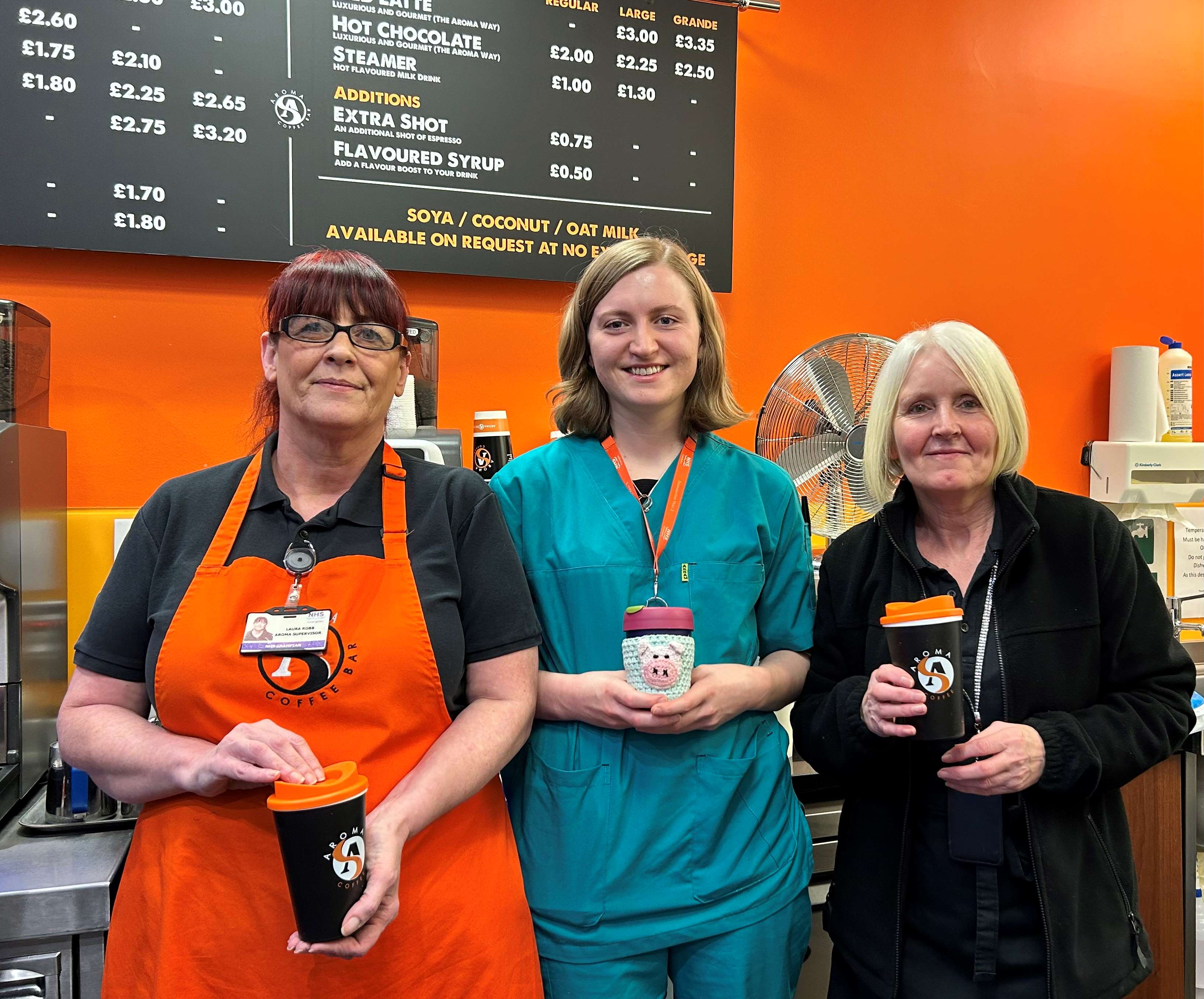Meet the NHS workers on a mission to save 500,000 disposable cups
Published: 15/01/2024 07:00Two junior doctors based at Aberdeen Royal Infirmary (ARI) are working on a project in partnership with colleagues who run their cafes to reduce the number of disposable coffee cups used by staff, patients and visitors.
Sorcha Heelan and Emily McGuinness were working in the geriatric ward together when they decided a quality improvement project looking at workplace habits and those that create the most waste could make a big difference to the environment.
They’re both sustainability champions for NHS Grampian, taking on a little extra work alongside their daily duties to help achieve the aims of the organisation’s new Climate Emergency and Sustainability Strategy.
Sorcha explained: “As well as providing information sessions to encourage colleagues to reduce the amount of waste created by meal deals, snacks, soft drinks and hot drinks, we decided focusing minds on one simple switch to taking a reusable coffee cup to work might help everyone realise change is possible.
“We started just in ward 102 in June and saved 60 cups over three weeks. Since then, we have presented the project at the NHS Sustainability Network and have also been in discussion with university colleagues about delivering the information session as part of the undergraduate medical curriculum. Climate change and health are linked so it’s really important to us as medical professionals.
“With the support of our colleagues who run the Aroma coffee shops who have been keen to encourage people to take their own cups for a while, we’re now in the process of advertising brand new Aroma branded ‘Keep Cups’ for just £4. There’s also an incentive for everyone visiting the Aroma cafes to benefit from a discount of 30p if they take along their own cup, or a smaller discount at their self-service machines. And, of course, there are the environmental savings to think about too.”
In August, there were 51,200 disposable coffee cups used across NHS Grampian’s Aroma facilities. This means over the course of a year there’s an opportunity to help save more than 500,000 from being wasted. In just one month, if all of the cups were to end up in landfill, it would have roughly the same environmental impact as filling 1,000 empty milk pint bottles and setting them on fire.
Sorcha adds: “This planet can only provide us with finite resources. As we are seeing more and more, our constant consumerist approach to all aspects of our lives is putting these supplies under strain, damaging natural habitats and contributing to climate change. Changing your routine to include a reusable coffee cup is simple and hopefully it will encourage people to look at changing other aspects of their lifestyles in order to be kinder to our planet.”
Read NHS Grampian’s Climate Emergency and Sustainability Strategy.

